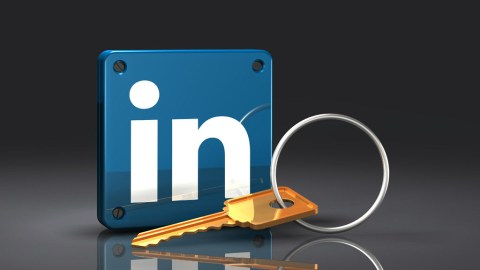The Key Difference Between Men and Women’s LinkedIn Profiles

After analyzing data from more than 141 million of its U.S. members, LinkedIn identified a key difference in the way men and women present themselves in profiles: Women promote themselves and their successes considerably less.
The report suggests that men talk themselves up more, and list more information in general:
When looking at LinkedIn member data, we found men tend to skew their professional brands to highlight more senior-level experience, often removing junior-level roles altogether.
Women are more likely to have shorter profile summaries.
In the U.S., women on average include 11% less skills than men on their LinkedIn profile, even at similar occupations and experience levels.
It’s not the first evidence that implies self-promotion comes easier for men. In 2011, the American Psychological Association published a cover story that explored how men and women differ in their approaches to self-promotion and salary negotiation in the workplace, titling the article “Are men better at selling themselves?”
The answer, in short, is yes.
In a study mentioned in the story, a group of about 200 students participated in a mock job interview, answering questions like “What are some of your best qualities or strengths?” and “Overall, why someone hire you as opposed to another candidate?”
The group was then asked to consider how they came off during the interview by answering questions like “Would you worry that people thought you were too confident?” and “Would you worry about being called vain?”
The results showed that both men and women worried about the consequences of appearing overconfident, however only women let that fear stop them from self-promoting.
“It’s not that women are inherently lacking the ability to self-promote, but it’s a stereotype violation for them,” said study author Corinne A. Moss-Racusin, PhD, a professor at Skidmore College, to the American Psychological Association.
That stereotype – that women aren’t (or shouldn’t be) assertive – puts women in a unique situation professionally.
“Women face a double bind. They’re penalized socially for behaving in ways that might be perceived as immodest, and they’re penalized professionally for behaving in ways that aren’t self-promoting,” said Marie-Helene Budworth, an associate professor at York University’s School of Human Resource Management, to the American Psychological Association.
And this seems to be costly, considering that a growing body of research indicates that women are far more reluctant than men to negotiate salaries and job offers. An analysis published in the book Women Don’t Ask: Negotiation and the Gender Divide estimated that misplaced modesty in salary negotiations cost the average working woman more than $500,000 in lost wages throughout her career.
Self-promotion on LinkedIn
Based on data from LinkedIn and some tips from Inc. and Zippia, here’s what seems to improve profiles for both men and women:
And if you’re still shy about promoting yourself? Lisa Thomas, PhD, in an interview with the American Psychological Association, relayed some advice that helped her decide to reach out to a potential employer — a decision that scored her a paid internship while studying as an undergraduate.
“Do it anyway. Because I was as scared as the next person.”





